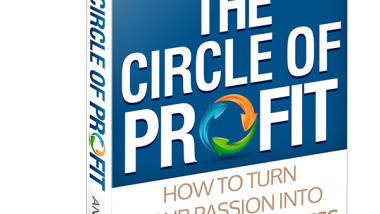If you’re working on improving your credit, you may be wondering what the perfect credit score exists is how you can achieve it. The numerical value of the ideal credit score differs depending on the scoring model, but it’s possible to obtain it. A perfect score shows lenders that you are the most desirable type of borrower because you have the lowest likelihood of missing payments or making late ones. However, even having a very good or excellent score is great.
Different Scoring Models
In order to clearly answer the question, “What is the highest credit score?” it is vital to understand how each scoring system works. The most popular scales are used by FICO and VantageScore. Both of them have scores ranging from 300 to 850, which means 850 is the holy grail in most instances.
But there are many different models that have varying ranges and ways to measure perfection. For example, the original VantageScore model had a scale from 501 to 990. In terms of applicants for small businesses, FICO has a Business Scoring Service with a range from 0 to 300. FICO also has models for car loans and credit card bills, both with ranges of 250 to 900.
How Scores Are Determined
Credit scores are calculated based on credit history from credit reports at the credit bureaus: Equifax, Experian, and TransUnion. Those who provide credit scores use software to compare credit decisions in reports against behaviors that show an inability to pay loans. The resulting three-digit number summarizes how risky a borrower is in terms of paying loans.
What Matters Most
There are numerous factors that influence your score, but these are the ones you should be most concerned with:
- Payment history: Your ability to pay your bills on time is the most significant factor in determining your credit score. Missed and late payments and delinquent accounts can harm your score.
- Credit utilization ratio: Your credit score will be hurt if you allow your balances to get close or reach your credit limits. If you owe $3,000 on your cards and have a total limit of $10,000, your rate would be 30%. A maxed-out card has a 100% usage rate. An ideal rate should be 30% or lower.
- Credit history: Lenders prefer borrowers with a long track record of properly managing credit. The longer you use credit, the better your score will be.
- Credit and debt portfolio: Scoring models generally favor various types of credit, including revolving credit and installment loans.
- Public information: Foreclosures, bankruptcies, and vehicle repossessions can seriously impact your score, although they will fade over time.
- Recent applications: Applying for credit causes a lender to make a hard inquiry into your credit score. This inquiry results in a temporary decrease in your score.
Requesting your free credit report will help you understand exactly what is impacting your score.
Tips for Getting the Highest Credit Score
First, it is important to remember that you do not necessarily need to get the perfect score. A score of at least 720 is usually considered excellent. But if you are determined to become a member of the “800 club”, here are some tips to help you on your journey:
- Become an authorized user: If you know someone with an established credit history, low credit use ratio and a clean record, ask about becoming an authorized user on his or her card.
- Keep balances low: The goal is to keep your balances under 10%.
- Pay bills on time: Set payment reminders or automatic payments to ensure you don’t miss any payments.
- Apply for new credit only when necessary: Unnecessary credit may harm your score. Too many applications can create multiple hard inquiries and tempt you to accumulate debt.
- Don’t close unused accounts: Keep any unused credit cards active as long as you aren’t paying too much in annual fees. This improves your credit utilization ratio.
- Check your report and dispute mistakes: You may be surprised that your credit report may contain mistakes. Dispute inaccuracies you find so that your score isn’t dragged down.
Advantages of Having Excellent (or Perfect) Credit
Achieving a high credit score comes with multiple benefits. For one, you gain access to a wider range of loans. Lenders will begin competing for your business by offering you attractive offers. You’ll also likely get numerous low-interest rate options on mortgages or car loans. An exceptional score also brings you higher borrowing limits. These generous limits allow you to make large purchases and carry short-term balances without worrying about exceeding a 30% usage rate.
You’ll also be able to carry credit cards with the best rewards. Not only will you qualify for cards with low rates and fees, but you may also be eligible for cards with travel points, cash-back offers, and other incentives. These cards allow you to save big on car rentals, lodging, air travel, and purchases at your favorite stores.




Your this article about credit score really amazing information. Thanks!